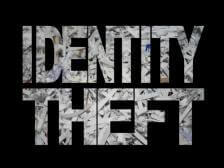How to Prevent Child Identity Theft
Children are much more likely to become victims of identity theft than adults. Here’s how to help keep them safe.
Laura Adams, MBA

Did you know that children are over 50 times more likely to become victims of identity theftthan adults? Most parents don’t find out that their child is a victim until he or she tries to get a driver’s license, mobile phone, or gets turned down for a job or financial aid.
By then, it’s difficult to clear a sabotaged credit report, mountains of debt, or even a criminal record that’s existed for many years in your child’s name.
Though you can’t completely protect children from identity theft, here are five tips to help keep them safe:
-
Don’t disclose your child’s Social Security (SS) number. Many organizations ask for a child’s SS number, but they don’t really need it. Find out whether giving the number is absolutely necessary to receive services—plus, how the organization will use and protect it.
-
Keep your child’s identity documents safe. Put confidential documents like birth certificates, passports, and Willsin a bank safe deposit box or fire-proof safe. Stolen documents are a common way that thieves get the data to assume kids’ identities.
-
Watch for mail addressed to your child. Receiving preapproved credit card offers, insurance offers, or other mail in your child’s name is a signal that credit accounts have probably been opened in their name.
-
Request free credit reports for your child. If a thief opened fraudulent accounts in your child’s name, then your child has credit reports that show it. If there’s been no foul play, your child won’t have a credit profile. You can get one free report from each of the nationwide credit reporting agencies every 12 months at annualcreditreport.com.
-
Educate children to protect their personal information. Teach children that their name, address, phone numbers, email, passwords, and Social Security number should never be shared over the internet or with anyone they don’t trust.
If you find evidence of identity theft, contact the credit bureaus, the creditor(s), and file a formal police report. Keep detailed records of your actions and correspondence in case you need to take legal action.
You can watch a step-by-step video tutorial on how to pull credit reports and get errors corrected in the free Credit Score Survival Kit.
More Links You Might Like:
8 Tips for Identity Theft Protection
PayPal or Credit Card—Which is Safer?
6 Simple Tools to Protect Your Privacy
5 Tips to Simplify Your Personal Finances
Identity Theft photo from Shutterstock

